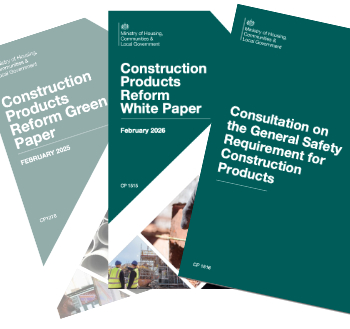Letters of credit in the construction industry

|
Contents |
[edit] Introduction
A letter of credit is a financial document used to reduce risk in the import and export of goods: to give assurance both to importers that they will receive their goods and to exporters that they will receive payment. It is sometimes referred to as 'documentary credit'.
For example, a contractor who has ordered curtain walling from Europe needs certainty that it will arrive by the due date, while the manufacturer wants assurance that they will be paid for the curtain walling that has been manufactured and shipped. If this were not the case, imported goods previously ordered might never arrive and exported goods might not be paid for. Given there are usually large distances involved in such transactions, as well as different legal systems and language barriers, any such disputes could be difficult to resolve.
[edit] Benefits for sellers (exporters) of goods and services
A letter of credit is a guarantee from a bank specifying that the seller (exporter) will receive a specified sum of money within a specified period as payment from a particular buyer. In return, the bank demands that specific terms are met, such as receiving certain documents as proof eg, shipping confirmation, etc. To receive payment, exporters must keep strictly to the terms of the letter, which normally requires providing documentary evidence that the goods supplied are exactly what they contracted to supply.
As long as the exporter meets all the terms and conditions, the letter of credit provides them with one of the most secure methods of payment. If, following issue of the letter of credit, the buyer does not pay the seller, the risk is then transferred from the seller to the bank.
[edit] Benefits for buyers
A letter of credit gives the buyer (importer) assurance that the seller will honour their side of the bargain and provide documentary proof for it. A buyer usually arranges a letter of credit with their own bank – referred to as the ‘issuing bank’. Although they can be useful, importers should typically only use letters of credit at the insistence of exporters and/or if they are required by national controls.
[edit] Cost and other drawbacks
Letters of credit can result in higher costs – banks will charge for them and so they may not be justifiable in relation to the order’s value. Costly delays, bureaucracy and other administrative problems are also possible.
[edit] Government advice
The UK government advises exporters to think carefully about whether they should request a letter of credit from an overseas customer. It recommends asking questions such as:
- Whether the country being exported to requires one.
- Does the value of the order justify the associated bank charges and extra costs?
- Is the customer creditworthy and do they have a track record with the exporter?
- Is the country being exported to politically stable and a good international trading partner?
- Is it standard practice for exporters to use letters of credit when trading with that country, and/or in that particular commodity?
- Seek other advice and guidance – a bank may be able to advise on trading with the country.
[edit] Types of letter of credit
There are numerous types of letter of credit, and some are more secure than others, but the main ones are:
- Irrevocable – cannot be changed or cancelled unless all parties agree.
- Revocable – can be changed or cancelled by the bank at any time and for any reason. These provide less security than the irrevocable type.
- Confirmed – at the request of the seller, the seller’s bank usually checks whether the buyer’s letter of credit is valid; the seller may, for extra security, require the bank to ‘confirm’ the letter. By this act of confirmation, the sellers bank agrees to guarantee payment if the buyer’s (issuing) bank fails to honour it.
- Unconfirmed – an unconfirmed letter of credit is not as secure as the confirmed type.
- Transferable – can be passed on to another beneficiary (party receiving payment) eg, when intermediaries are involved.
- Revolving – these can be used to cover several transactions between the same buyer and seller.
[edit] Related articles on Designing Buildings
- 5 Essential Tips for the Import / Export Trade
- Advance payment bond.
- Bonds and guarantees.
- Brexit.
- Cash flow.
- Customs guarantee.
- Late payment.
- Parent company guarantee.
- Performance bonds.
- Retention of title.
- Vesting certificate.
[edit] External references
Featured articles and news
The need for a National construction careers campaign
Highlighted by CIOB to cut unemployment, reduce skills gap and deliver on housing and infrastructure ambitions.
AI-Driven automation; reducing time, enhancing compliance
Sustainability; not just compliance but rethinking design, material selection, and the supply chains to support them.
Climate Resilience and Adaptation In the Built Environment
New CIOB Technical Information Sheet by Colin Booth, Professor of Smart and Sustainable Infrastructure.
Turning Enquiries into Profitable Construction Projects
Founder of Develop Coaching and author of Building Your Future; Greg Wilkes shares his insights.
IHBC Signpost: Poetry from concrete
Scotland’s fascinating historic concrete and brutalist architecture with the Engine Shed.
Demonstrating that apprenticeships work for business, people and Scotland’s economy.
Scottish parents prioritise construction and apprenticeships
CIOB data released for Scottish Apprenticeship Week shows construction as top potential career path.
From a Green to a White Paper and the proposal of a General Safety Requirement for construction products.
Creativity, conservation and craft at Barley Studio. Book review.
The challenge as PFI agreements come to an end
How construction deals with inherited assets built under long-term contracts.
Skills plan for engineering and building services
Comprehensive industry report highlights persistent skills challenges across the sector.
Choosing the right design team for a D&B Contract
An architect explains the nature and needs of working within this common procurement route.
Statement from the Interim Chief Construction Advisor
Thouria Istephan; Architect and inquiry panel member outlines ongoing work, priorities and next steps.
The 2025 draft NPPF in brief with indicative responses
Local verses National and suitable verses sustainable: Consultation open for just over one week.
Increased vigilance on VAT Domestic Reverse Charge
HMRC bearing down with increasing force on construction consultant says.
Call for greater recognition of professional standards
Chartered bodies representing more than 1.5 million individuals have written to the UK Government.






















